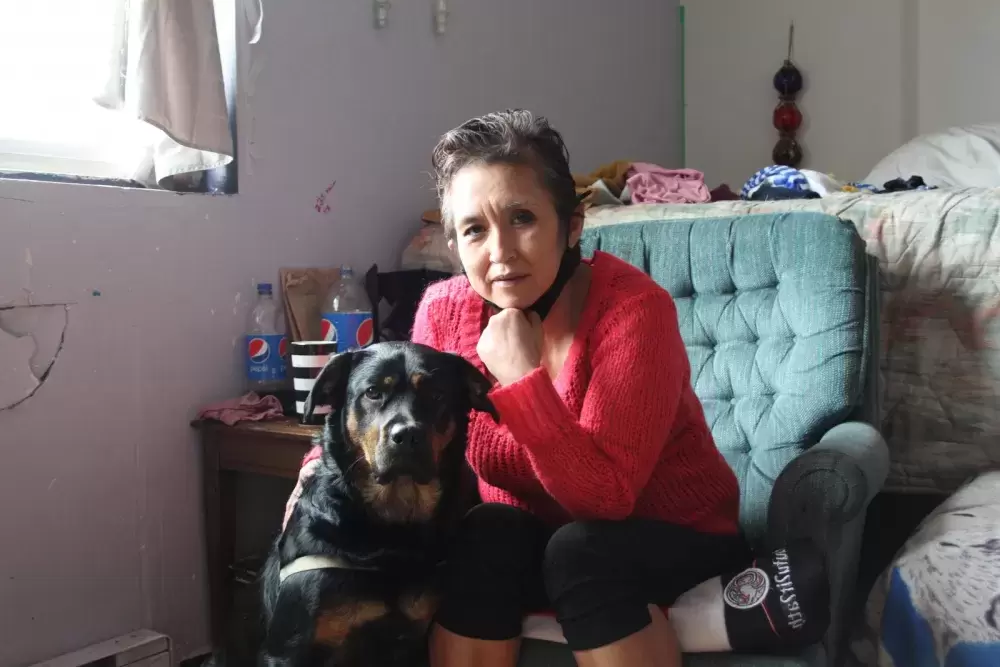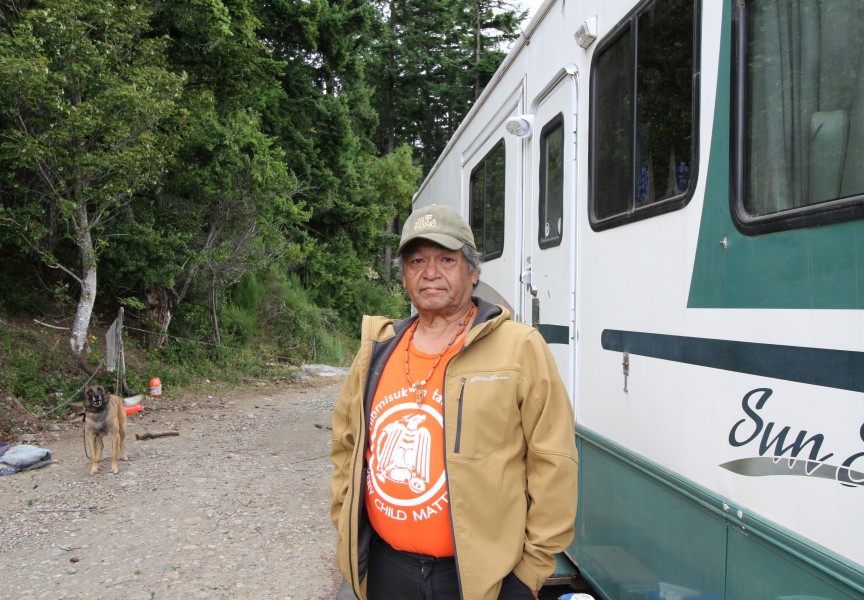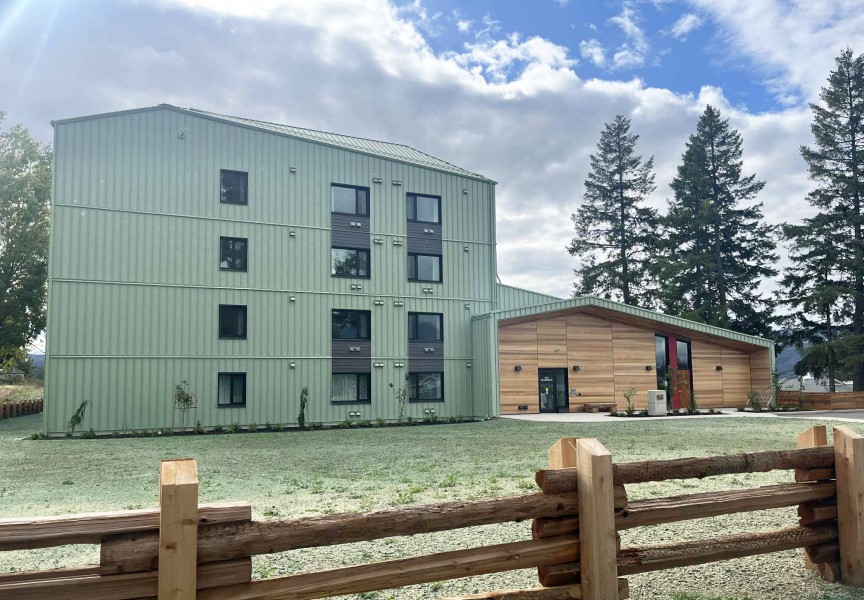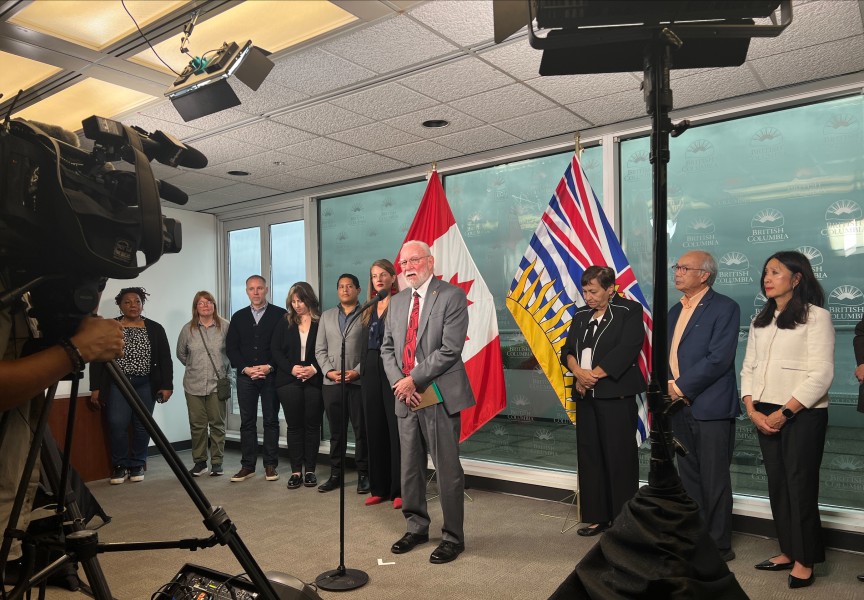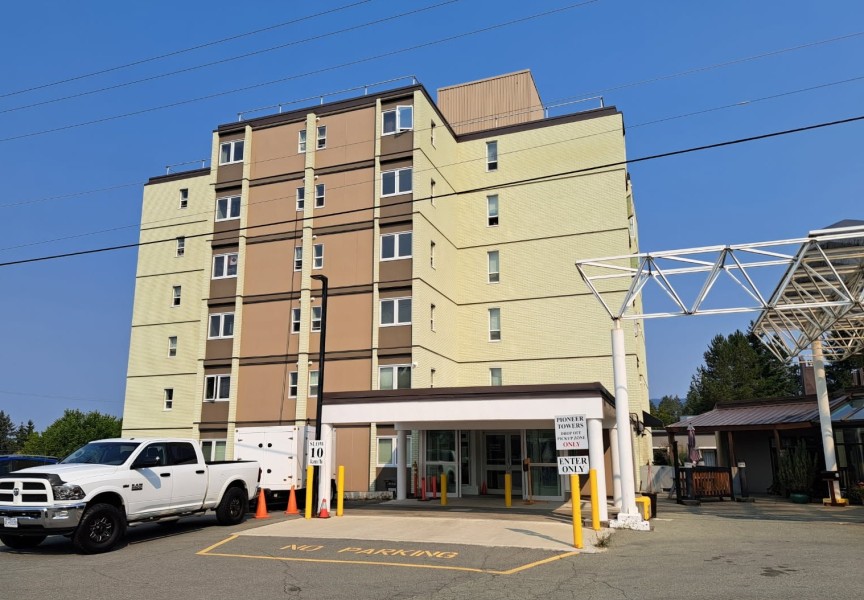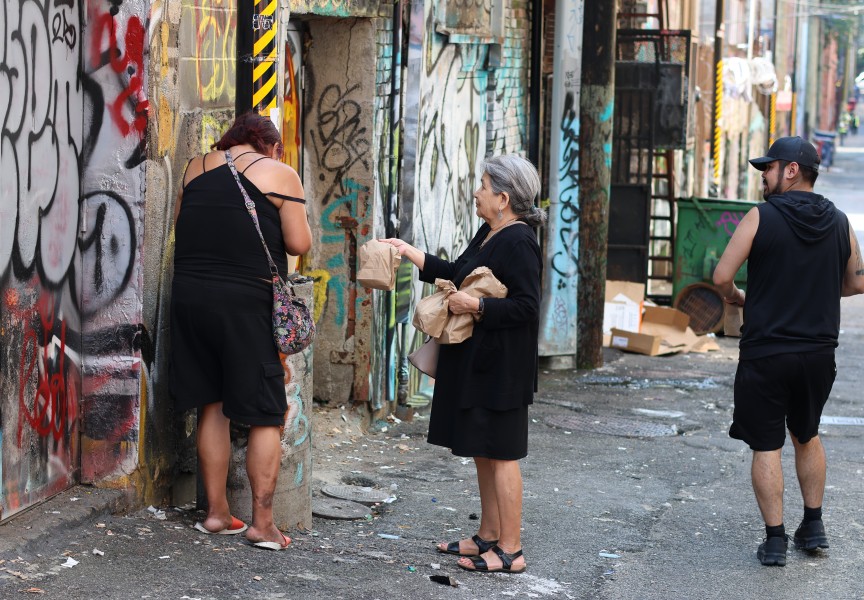As winter drags on, Jacquie Dennis is hoping the situation in her apartment will improve soon, where Dennis and her sister Josie have been without hot water for a month.
The problem started in mid January, when all of the 21 suites in the Beaufort Convention Centre were without hot water. By the end of the month Beaufort management installed a new hot water tank, amending the problem for those in the Uptown Port Alberni building – except Jacquie and Josie, who live next to each other on the second floor.
“They sort of fixed the problem the first day. Some people had hot water, some people didn’t. The guy came back again the next day,” recalled Jacquie, who shares the $750-a-month apartment with her son Stephane. “It’s only these two rooms here that don’t have hot water now.”
Over the last month she’s had to rely on family and friends for warm showers, while washing dishes is a challenge.
“It goes luke warm and then it goes ice cold,” said Jacquie, noting that Beaufort management has assured her over the last month that hot water will return. “They just kept saying ‘It’s getting fixed, it’s getting fixed’.”
Heather Depencier of the Beaufort’s management said that the problem is being handled.
“We are dealing with it. We’ve just had the plumber leave here again today,” she told Ha-Shilth-Sa on Wednesday, Feb. 17. “He actually has to buy two new hot water tanks now. We’re waiting for parts, but with COVID it’s taking too long to get parts for it.”
Depencier added that the building, which is commonly known as the Beaufort Hotel, had to buy two new hot water tanks.
“I think the tanks have had it and I don’t think they can’t be fixed anymore. We can’t even get parts brought in,” she said. “They will have the tank tomorrow or Saturday for sure.”
Regardless of what happens, failure to provide hot water is a clear breach of provincial laws that hold a landlord accountable, said Rob Patterson, a lawyer with the Tenant Resource and Advocacy Centre.
According to B.C.’s Residential Tenancy Act, a landlord must maintain a property that “makes it suitable for occupation by a tenant”.
“Especially where hot water is not provided for an extended period of time - especially in the winter - I think a tenant has a strong case that that’s a pretty serious breach of the landlord’s obligations under the Residential Tenancy Act,” said Patterson. “When those services and facilities are essential to the use of the unit, then a landlord always has that obligation, they can’t choose not to provide it or withdraw that service. Hot water is classified as an essential service, so if a landlord doesn’t provide it to a tenant, they are in breach of the Residential Tenancy Act.”
If an essential service isn’t being provided, a renter can contact the provincial Residential Tenancy Branch, which can grant a legal order for the landlord to fix the problem or even determine financial compensation for the tenant due to the inconvenience.
Patterson advises tenants to document correspondence with landlords when possible, or to collect evidence such as text messages, emails, notes or statements from witnesses if these are required by an arbitrator with the Residential Tenancy Branch.
“The first thing the tenant has to do is inform the landlord of the problem, preferably in writing,” he said. “The landlord’s obligation to fix the problem only really kicks in once they know it’s a problem.”
“A tenant doesn’t need a perfect written record to be successful, but they need something proving what actually happened,” added Patterson. “If it’s a repair issue that needs to be fixed in the future, they can ask for a rent reduction until the repair is completed, which puts an incentive on the landlord to do the work and earn back the right to collect full rent.”
The Residential Tenancy Brach can be contacted at 1-800-665-8779 or information is available at https://www2.gov.bc.ca/gov/content/housing-tenancy/residential-tenancies. The Tenant Resource and Advisory Centre can be reached at 1-800-665-1185.

